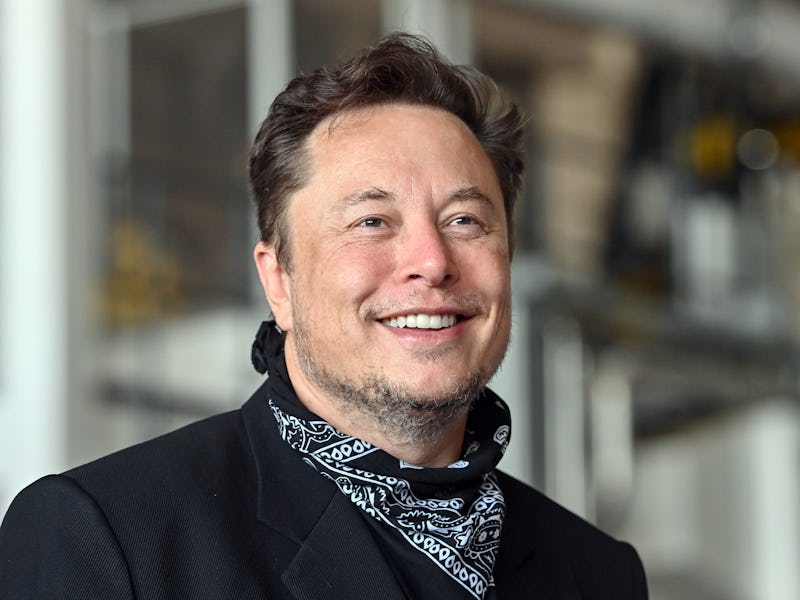Why FOMO Is Driving Elon Musk to Make a ChatGPT Knockoff
“TruthGPT” is the ideal Muskian project.

Elon Musk wants to create a competitor to OpenAI’s ChatGPT.
The OpenAI co-founder, current Twitter owner, and EV billionaire announced his intentions to create a “maximum truth-seeking AI” called TruthGPT that “tries to understand the nature of the universe.” Musk shared his plan as part of an interview with Fox News's Tucker Carlson about the dangers of artificial intelligence.
While yet another ambitious plan from a man who’s made a career appearing to realize them, “TruthGPT” also illustrates the current odd fight over large language models and the chatbots they support. Namely, the people with the loudest issue with them — that they’re dangerous for humanity — also seem deeply dedicated to bringing them into existence for the largest profit possible.
TruthGPT
Musk’s plan for “TruthGPT” is lacking in detail, but it appears to have a conservative bent. You don’t announce a product or business plan on Fox News unless you’re deliberately trying to cultivate a certain audience.
Musk has, in the past, suggested that OpenAI’s products are “too woke.” In a tweet replying to OpenAI CEO Sam Altman, he said, “the danger of training AI to be woke — in other words, lie — is deadly.” In general, it's important not to take anything Musk says too seriously, but his reactionary stance towards OpenAI and its products is as much about his rebrand as a “freedom of speech” right-winger as it is his anger that he’s not making OpenAI’s billions, or concern that AI is dangerous.
The hope, according to Musk, is that training TruthGPT to care “about understanding the universe” means it's “unlikely to annihilate humans because we are an interesting part of the universe." What other uses it will have besides that, or if that plan even makes sense, were not explained, but Musk has reportedly hired engineers from Google’s DeepMind to make it happen, according to Reuters.
When Pushback Fuels Hype
The issue, in terms of how Musk, Fox News, and many in the AI industry frame it, is that large language models and chatbots are just the precursors to something even more powerful and dangerous. “AI is more dangerous than, say, mismanaged aircraft design or production maintenance or bad car production,” Musk explained to Fox News, “in the sense that it has the potential, however small one may regard that probability, but it is not trivial; it has the potential of civilizational destruction."
That lines up with the general sentiment of the recent “AI pause letter” (among which Musk was a signer) from the Future of Life Institute, which called for a “pause for at least 6 months the training of AI systems more powerful than GPT-4,” among other demands. The letter itself was heavily criticized, and some of the signers retracted their signatures or turned out to be fake entirely, but it did successfully advance the cause in one way — by making AI seem even more dangerous.
If an AI is somehow hyper-intelligent and dangerous to the point that the people making it (or trying to make it) are afraid of it, shouldn’t we be afraid too? And if they claim to be the only people able to work on it safely, shouldn’t we buy their products over all others? It’s to anyone who sells an AI or anything AI-adjacent’s benefit that it seems dangerously capable and more useful than it actually is. In other words, of course, Musk wants to provide an alternative; there’s money to be made!
Difficult History
It’s bound to sting that OpenAI was able to strike deals like its multibillion-dollar “investment” from Microsoft, too. You’re stuck losing your shirt on Twitter debt, and the open source organization you helped found with your own money is essentially going private and raking in cash by commercializing its research? That’s got to suck for a billionaire.
Especially because it could have gone another way, too. In 2018, in an attempt to keep OpenAI competitive with Google, Musk tried to step in and take Altman’s role as CEO, Semafor reported in March. When the company refused, Musk stepped away as an investor entirely, a decision that helped put the company on the path towards maximizing profits in the first place.
TruthGPT, if it ever is a product (it probably won’t be called that, as TechCrunch notes), manages to do a lot for Musk. It gets back at OpenAI, plays to his conservative base, and taps a new well of hype Musk can use to juice valuation and interest down the road. It’s easier than Twitter because it's less defined and, in terms of public understanding, far more in the realm of the imaginary. Perfect for the showman Elon Musk ultimately is.
This article was originally published on